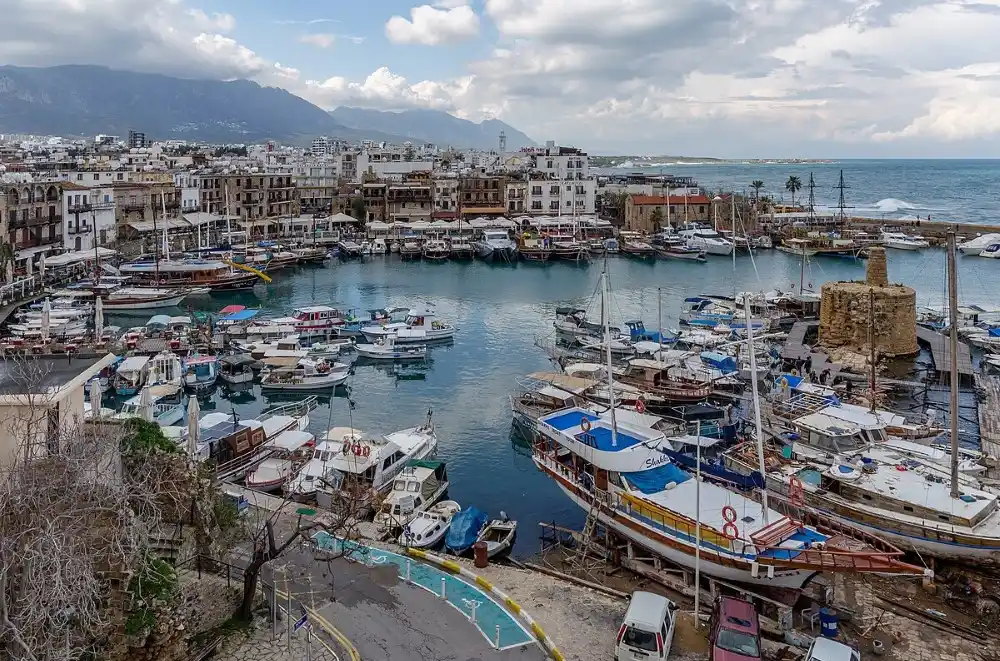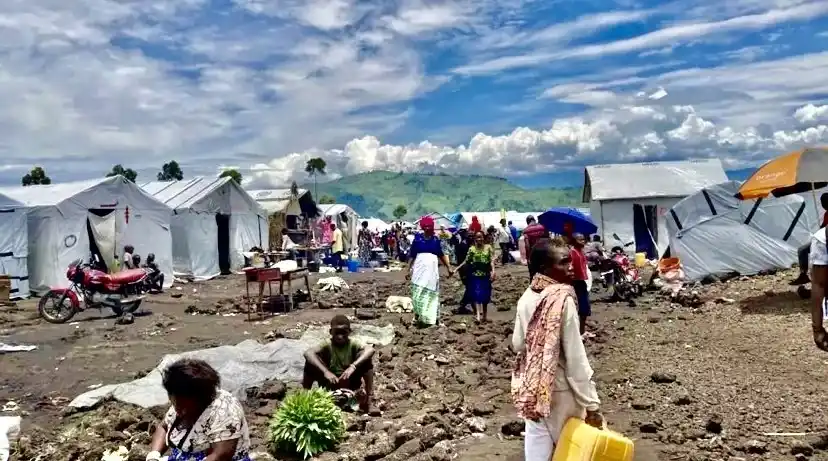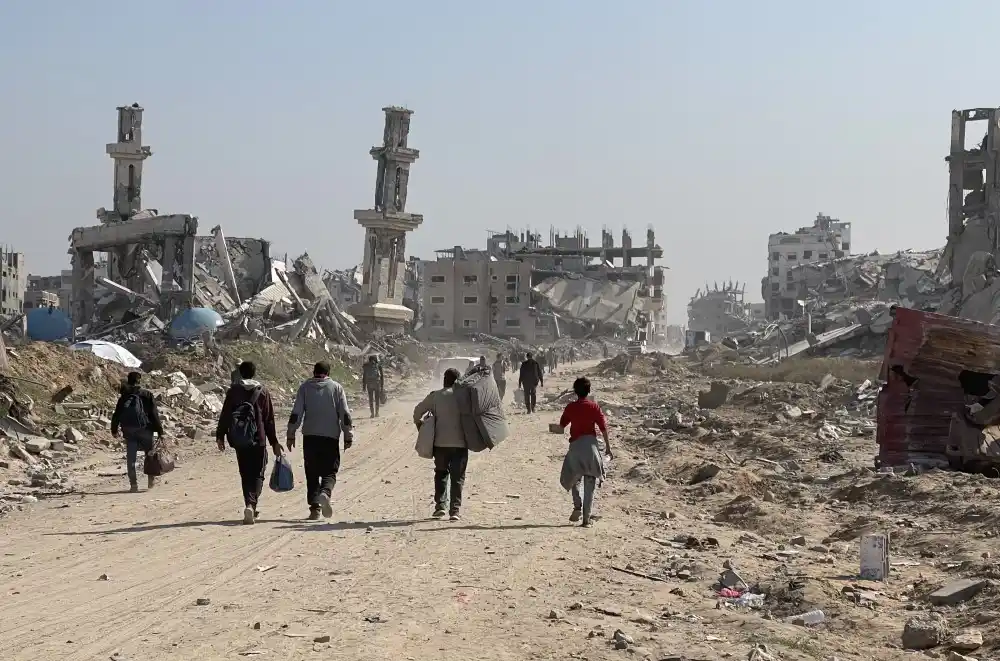A ranking of the angriest countries in the world according to the latest Global Emotions Report published by Gallup.
Gallup conducted 146,000 interviews with adults in 142 countries and territories in 2023 as part of their Global Emotions Report. The report found that, globally, nearly one in four (22%) people experienced anger during the previous day.
Northern Cyprus is the angriest country in the world according to the latest report with 49% of respondents saying they experienced anger during the previous day.
Comparatively, in the Republic of Cyprus, only 18% reported feeling anger in the same timeframe.

The northern part of the island, recognized only by Turkey, has struggled with economic and political crises since its unilateral declaration of independence in 1983.
Ongoing international embargoes, enforced by the wider global community and the European Union’s recognition of the Republic of Cyprus alone, have left Northern Cyprus isolated.
Many residents resent their deep dependence on Turkey, which remains a political and economic lifeline.
10 angriest countries in the world
- Northern Cyprus
- Iraq
- Armenia
- Jordan
- Democratic Republic of Congo
- Libya
- State of Palestine
- Tunisia
- Morocco
- Guinea
What causes anger
Unsurprisingly, many of the angriest countries in the world are dealing with political or economic instability or struggling with the effects of war.
The Democratic Republic of Congo ranks as the fifth angriest country. In 2023, nine in 10 adults in DRC were unable to afford food or shelter or say they struggled to afford both.
The International Organization for Migration (IOM) reports that as of mid‑2023, conflict in the eastern DRC displaced nearly 1 million people, contributing to a total of 6.1 million internally displaced people across the country.
This led to many unaddressed issues such as violence, and outbreaks of cholera and measles, as people were forced to flee to temporary camps.

Iraq, the world’s second angriest country, has struggled to maintain order since the 2003 US-led invasion.
The State of Palestine ranks seventh on the list, reflecting the impact of ongoing conflict, restrictions, and economic struggles on daily life. Many Palestinians live under constant stress, which fuels high levels of frustration and anger.

Finland has held the title as the world’s happiest country for the last eight consecutive years, yet it is Vietnam that surprisingly ranks as the least angry nation, ahead of Finland, Estonia, Portugal, and Mexico.
The 10 least angry countries:
- Vietnam
- Finland
- Estonia
- Portugal
- Mexico
- Mauritius
- Uruguay
- Netherlands
- Kazakhstan
- Iceland
Angriest countries in the world – complete ranking
The table below ranks participating countries by the percentage of approximately 1,000 adults, who answered yes when asked, ‘Did you experience anger during a lot of the day yesterday?’
* Some countries may have been omitted due to insufficient data.
** ? denotes the respondent either didn’t know or refused to answer.
| Country | Yes | No | ? | |
|---|---|---|---|---|
| Northern Cyprus | 49% | 49% | 2% | |
| Iraq | 47% | 53% | ||
| Armenia | 42% | 58% | ||
| Jordan | 42% | 58% | ||
| Democratic Republic of the Congo | 40% | 60% | ||
| Libya | 40% | 60% | ||
| State of Palestine | 39% | 61% | ||
| Tunisia | 39% | 61% | ||
| Morocco | 38% | 62% | ||
| Guinea | 36% | 64% | ||
| Israel | 36% | 62% | 2% | |
| Pakistan | 36% | 64% | ||
| Chad | 35% | 65% | ||
| Iran | 35% | 65% | ||
| Lebanon | 35% | 65% | ||
| Türkiye | 34% | 65% | 1% | |
| Gabon | 33% | 67% | ||
| Benin | 32% | 67% | ||
| Sierra Leone | 32% | 64% | 4% | |
| Comoros | 31% | 69% | ||
| India | 31% | 69% | ||
| Lao People's Democratic Republic | 31% | 69% | ||
| Niger | 31% | 69% | ||
| United Arab Emirates | 31% | 69% | ||
| Madagascar | 30% | 69% | ||
| Myanmar | 29% | 71% | ||
| Philippines | 29% | 70% | 1% | |
| Sri Lanka | 29% | 70% | ||
| Uganda | 29% | 71% | ||
| Bangladesh | 28% | 72% | ||
| Bolivia | 28% | 72% | ||
| Republic of the Congo | 28% | 71% | 1% | |
| Yemen | 28% | 72% | ||
| Bahrain | 27% | 73% | ||
| Cameroon | 26% | 74% | ||
| Ethiopia | 26% | 74% | ||
| Liberia | 26% | 74% | ||
| North Macedonia | 26% | 74% | 1% | |
| Togo | 26% | 74% | ||
| Afghanistan | 25% | 73% | 2% | |
| Egypt | 25% | 75% | ||
| Mauritania | 25% | 75% | ||
| Saudi Arabia | 25% | 75% | ||
| Albania | 24% | 76% | ||
| Montenegro | 24% | 75% | 1% | |
| Nepal | 24% | 75% | ||
| Eswatini | 23% | 77% | ||
| Georgia | 23% | 76% | ||
| Peru | 23% | 76% | ||
| Spain | 23% | 77% | ||
| Uzbekistan | 23% | 77% | ||
| Czech Republic | 22% | 78% | ||
| Mali | 22% | 78% | ||
| Malta | 22% | 78% | ||
| Nigeria | 22% | 78% | ||
| Ukraine | 22% | 78% | 1% | |
| Zambia | 22% | 78% | ||
| Bosnia and Herzegovina | 21% | 78% | 1% | |
| Cambodia | 21% | 79% | ||
| Ecuador | 21% | 79% | ||
| Greece | 21% | 79% | ||
| Tajikistan | 21% | 79% | 1% | |
| Azerbaijan | 20% | 79% | 1% | |
| China | 20% | 80% | ||
| Indonesia | 20% | 80% | ||
| Slovakia | 20% | 80% | ||
| Brazil | 19% | 81% | ||
| Burkina Faso | 19% | 81% | ||
| Canada | 19% | 80% | ||
| Gambia | 19% | 81% | ||
| Ireland | 19% | 81% | ||
| Cote d'Ivoire | 18% | 82% | ||
| Cyprus | 18% | 82% | ||
| Kenya | 18% | 82% | ||
| Malaysia | 18% | 82% | ||
| Namibia | 18% | 82% | ||
| Nicaragua | 18% | 82% | ||
| Romania | 18% | 82% | ||
| South Korea | 18% | 82% | ||
| United States of America | 18% | 82% | ||
| Austria | 17% | 83% | ||
| Costa Rica | 17% | 83% | ||
| France | 17% | 83% | ||
| Ghana | 17% | 83% | ||
| Malawi | 17% | 83% | ||
| Mozambique | 17% | 83% | ||
| South Africa | 17% | 83% | 1% | |
| United Kingdom of Great Britain and Northern Ireland | 17% | 83% | ||
| Guatemala | 16% | 84% | ||
| Kuwait | 16% | 83% | ||
| Kyrgyzstan | 16% | 84% | 1% | |
| Senegal | 16% | 84% | ||
| Argentina | 15% | 85% | ||
| Botswana | 15% | 85% | ||
| Colombia | 15% | 85% | ||
| El Salvador | 15% | 85% | ||
| Germany | 15% | 85% | ||
| Honduras | 15% | 84% | 1% | |
| Latvia | 15% | 85% | ||
| Tanzania | 15% | 85% | ||
| Thailand | 15% | 84% | ||
| Australia | 14% | 86% | ||
| Belgium | 14% | 86% | ||
| Denmark | 14% | 86% | ||
| Slovenia | 14% | 86% | ||
| Venezuela | 14% | 85% | 1% | |
| Chile | 13% | 87% | ||
| Hong Kong, S.A.R. of China | 13% | 87% | ||
| Japan | 13% | 87% | ||
| Kosovo | 13% | 86% | 1% | |
| Lithuania | 13% | 85% | 2% | |
| Luxembourg | 13% | 86% | ||
| Mongolia | 13% | 87% | ||
| New Zealand | 13% | 87% | ||
| Serbia | 13% | 86% | ||
| Singapore | 13% | 87% | ||
| Somalia | 13% | 86% | ||
| Dominican Republic | 12% | 88% | 1% | |
| Italy | 12% | 88% | ||
| Moldova, Republic of | 12% | 85% | 2% | |
| Panama | 12% | 88% | ||
| Paraguay | 12% | 88% | ||
| Poland | 12% | 87% | ||
| Bulgaria | 11% | 87% | 2% | |
| Russian Federation | 11% | 89% | ||
| Sweden | 11% | 89% | ||
| Switzerland | 11% | 89% | ||
| Hungary | 10% | 90% | ||
| Norway | 10% | 90% | ||
| Taiwan, Province of China | 10% | 90% | ||
| Zimbabwe | 10% | 90% | ||
| Croatia | 9% | 89% | 2% | |
| Iceland | 9% | 91% | ||
| Kazakhstan | 9% | 89% | 2% | |
| Netherlands (Kingdom of the) | 9% | 91% | 1% | |
| Uruguay | 9% | 91% | ||
| Mauritius | 8% | 92% | ||
| Mexico | 8% | 91% | ||
| Portugal | 8% | 92% | ||
| Estonia | 7% | 93% | ||
| Finland | 7% | 93% | ||
| Vietnam | 5% | 95% |
Source: Gallup Global Emotions Report, 2024
Caitriona Maria is an education writer and owner of The Facts Institute. A teacher for seven years, she has been committed to providing students with the best learning opportunities possible, both domestically and abroad. Dedicated to unlocking students' potential, Caitriona has taught English in several countries and continues to explore new cultures through her travels.